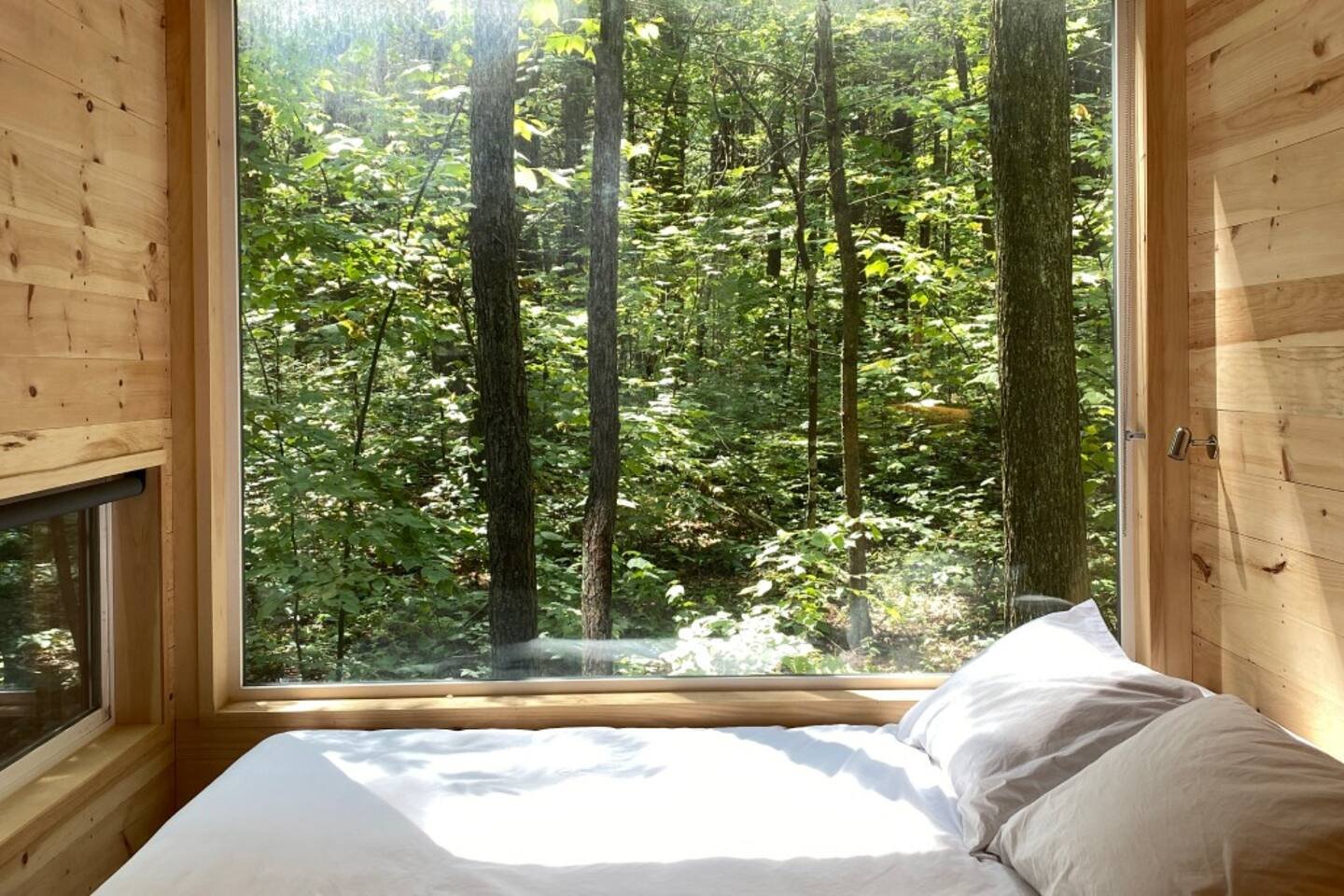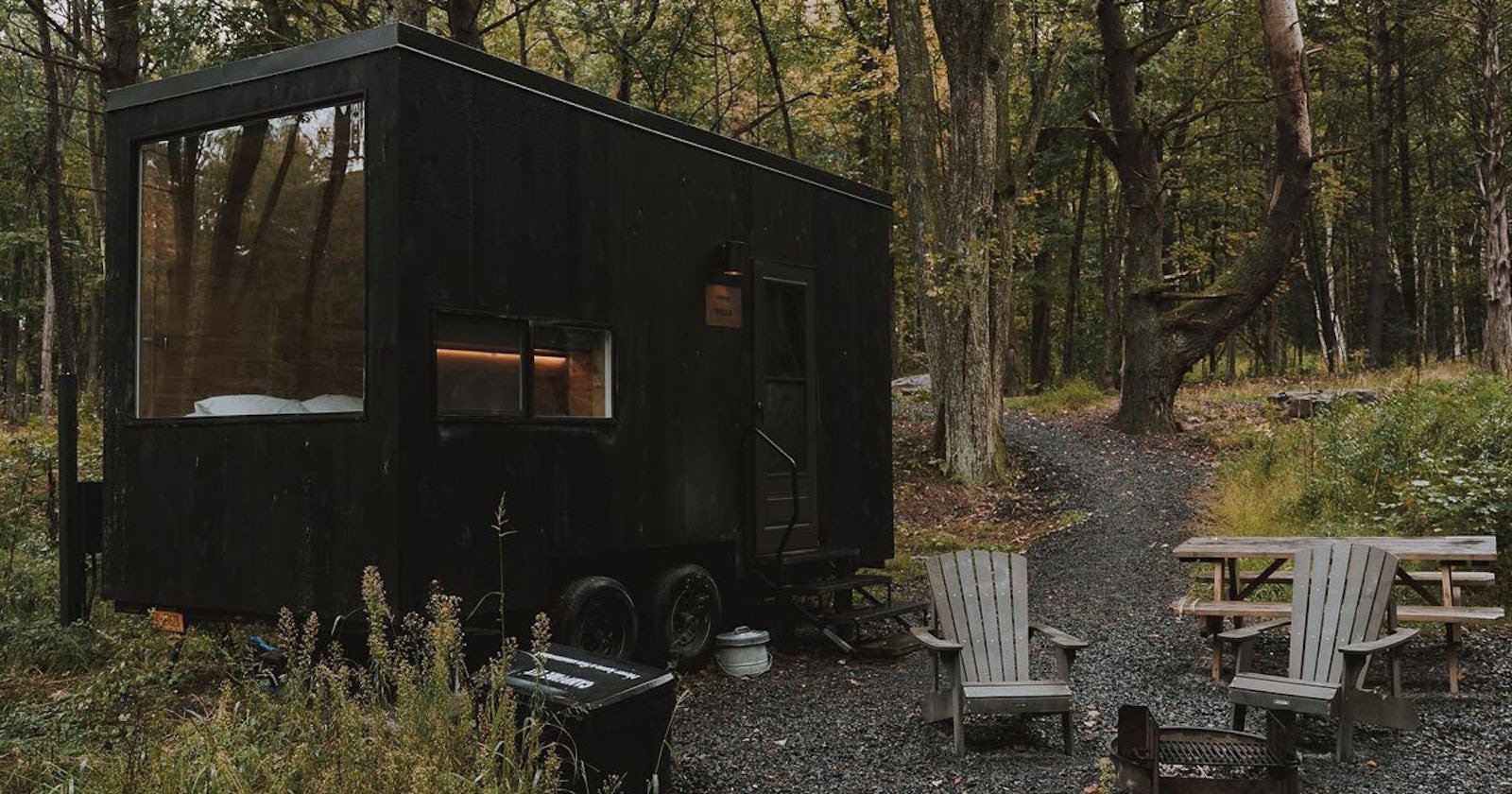Marriott’s Outdoor Pivot: What Postcard Cabins Means for the Future of Experiential Hospitality
In a bold move that underscores the evolving preferences of modern travelers, Marriott International has announced its acquisition of Postcard Cabins (formerly known as Getaway). This strategic decision signals a calculated leap into the growing market of experiential outdoor hospitality, a space that seamlessly combines the allure of nature with the comfort of upscale amenities.
Postcard Cabins in Shenandoah, VA
A New Era for Marriott Bonvoy
The acquisition will add 1,200 tiny cabins to the Marriott Bonvoy portfolio, an innovative step toward diversifying its hospitality offerings. These cabins, carefully positioned within a two-hour drive of major cities, cater to affluent urban dwellers seeking a retreat that brings them closer to nature without sacrificing creature comforts. Marriott’s decision reflects a growing trend among travelers who prioritize experiences over opulence, where location and immersion matter more than thread count.
By introducing these modern “glamping” accommodations, Marriott is aiming to capture a younger, eco-conscious demographic that values mindfulness, wellness, and sustainability in their travel experiences.
Beyond the Hiking-Boot Set
Marriott’s ambitions in outdoor hospitality go beyond catering to adventure-seekers. The Postcard Cabins acquisition aligns with a larger strategy that includes collaborations with national park lodging operator Trailborn and tented camps in the Masai Mara. These ventures are part of a broader pivot toward “upscale outdoor experiences,” designed for travelers who crave the serenity of wilderness balanced with modern amenities.
Postcard Cabins, known for their 136-square-foot units, deliver a unique blend of simplicity and style, offering essential comforts such as plush beds, heating, and small kitchens. Their strategic placement in remote yet accessible areas creates a gateway for urban escapees to reconnect with nature—without the hassle of pitching a tent.
The Opportunity in Experiential Travel
The experiential travel market, particularly in the upscale outdoor segment, is one of the fastest-growing categories in the industry. Glamping, a fusion of “glamorous” and “camping,” has surged in popularity as travelers seek memorable stays in scenic, off-the-beaten-path locations. With the Postcard Cabins acquisition, Marriott is positioning itself to dominate this niche, creating a new foothold that complements its traditional hotel offerings.
The focus here is clear: experiences that deliver intimacy with nature while ensuring comfort and convenience. In a world where travelers increasingly seek Instagram-worthy stays and transformative moments, Marriott’s investment places them at the forefront of this growing demand.
Trailborn, Grand Canyon
Challenges on the Horizon
While this outdoor pivot is an exciting prospect, it’s not without challenges. Outdoor hospitality requires a vastly different operational approach compared to traditional hotels. Maintaining remote properties, ensuring guest safety in less controlled environments, and preserving sustainability while scaling up are just a few hurdles Marriott will need to overcome.
However, with its decades of hospitality expertise and robust operational infrastructure, Marriott is well-positioned to translate its high standards of service from marble-lobbied urban hotels to cozy wooden porches nestled in the wilderness.
Postcard Cabins current locations
Why It Matters
Marriott’s move into the experiential lodging market signifies a larger shift within the hospitality industry. It reflects a growing recognition that travelers increasingly value meaningful, unique experiences over traditional luxury. By combining its trusted brand with the authenticity of outdoor stays, Marriott is creating a hybrid model that caters to the best of both worlds.
As the industry continues to evolve, this acquisition will likely serve as a blueprint for other major players looking to diversify their offerings and appeal to the next generation of travelers.
Where Tomu Leads, Others Follow
As a modular construction pioneer in experiential lodging, Tomu has long been addressing the challenges Marriott now faces. Marriott’s acquisition underscores the growing demand for turnkey solutions like Tomu’s Signature Villas, which blend luxury, sustainability, and scalability for both urban escapees and visionary investors.
Tomu’s Key Differentiators:
Modular Excellence: Like Postcard Cabins, Tomu’s prefabricated villas are designed for efficiency and sustainability, cutting build times and reducing costs by 20% compared to traditional construction.
Customization at Scale: Unlike Postcard Cabins, Tomu offers a full spectrum of customization through its Tailored Villas and Bespoke Guest Rooms, catering to boutique developers, independent hosts, and high-volume hospitality operators.
Eco-Friendly Focus: Built with the environment in mind, Tomu’s solutions resonate with today’s eco-conscious travelers and investors seeking to differentiate their offerings in a crowded market.
The Tomu Advantage for Investors
Marriott’s acquisition of Postcard Cabins highlights the investment potential in the experiential lodging market. Yet, operational complexities such as scaling properties, maintaining remote infrastructure, and ensuring sustainability can be daunting. This is where Tomu shines as a partner for hospitality investors looking to build their own brands in this emerging space.
Why Choose Tomu?
Speed-to-Market: Tomu’s offsite modular system allows investors to meet growing demand.
Scalability & Versatility: From single-unit getaways to entire wellness retreats, Tomu’s villas can be tailored to meet diverse market needs.
Turnkey Solutions: With Tomu, investors gain access to complete solutions—from design to delivery—ensuring a seamless path to profitability.
A Shared Vision for Hospitality
Marriott’s bold outdoor pivot validates what Tomu has always believed: travelers want unique, immersive experiences that transcend traditional lodging. While Marriott’s acquisition positions it as a leader in experiential travel, Tomu empowers investors and independent operators to create their own high-impact hospitality concepts. Together, both brands are shaping the future of lodging by blending innovation, sustainability, and unmatched guest experiences.
Final Thoughts: Build Beyond Boundaries
Marriott’s move into the experiential travel space is a sign of what’s to come for the hospitality industry. Yet for those looking to capture this opportunity, Tomu provides a flexible, scalable platform to bring experiential lodging visions to life. Whether it’s a serene cabin retreat or an eco-conscious wellness resort, Tomu is the partner to help you Build Beyond Boundaries.
Curious about how Tomu can support your hospitality vision? Visit www.tomuhaus.com to learn more.





